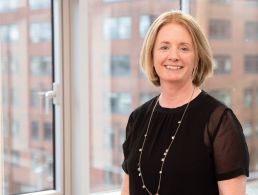A group representing Ireland’s indigenous software sector has called for a shake-up of the college entry system so that the much-maligned points system is not the only way potential students can access higher education.
While describing the points system as “brutally fair”, the chair of the Irish Software Association (ISA) Edel Creely also said it falls short of being an accurate measurement of student ability.
“Both academics and employers agree that school-leavers lack problem-solving, analytical and creative abilities – a byproduct of the increasing predictability of the State exams,” Creely pointed out.
“As well as that, the points race has become a function of memory, with students, in some cases, cracking the exam code without necessarily having a complete appreciation of the subject matter.”
Creely said skills such as critical thinking, judgment and analytical capability are essential for the growth of the indigenous software technology sector.
She added the industry’s success into the future will depend on how Ireland can adapt its education system to meet the needs of emerging areas of technology, such as cloud, big data and information security.
“But we will also need graduates who can solve problems, work in teams and manage projects. These skills can be integrated into primary and second-level education, and continue right through to college.”
Time to revise the Leaving Cert
The ISA argues that a revised Leaving Certificate curriculum could be assessed in new ways, such as using open-book exams, more project work and extended essays, extra-curricular activity, and demonstration of innovation and creativity.
“Based on this model, college access would change, with points no longer operating as the sole determinant of whether a student goes on to higher education. A new college access model could include interviews, continuous assessment, personal statements, and testing of course-relevant skills.”
She also said the ISA believes colleges should give undergraduate students the freedom to choose interdisciplinary programmes to avoid early specialisation.
“A data scientist, for example, draws on maths, computing, science, statistics and sociology to interpret information and produce insights.
“But most colleges do not offer these subjects as part of the same programme. That needs to change,” Creely said.




